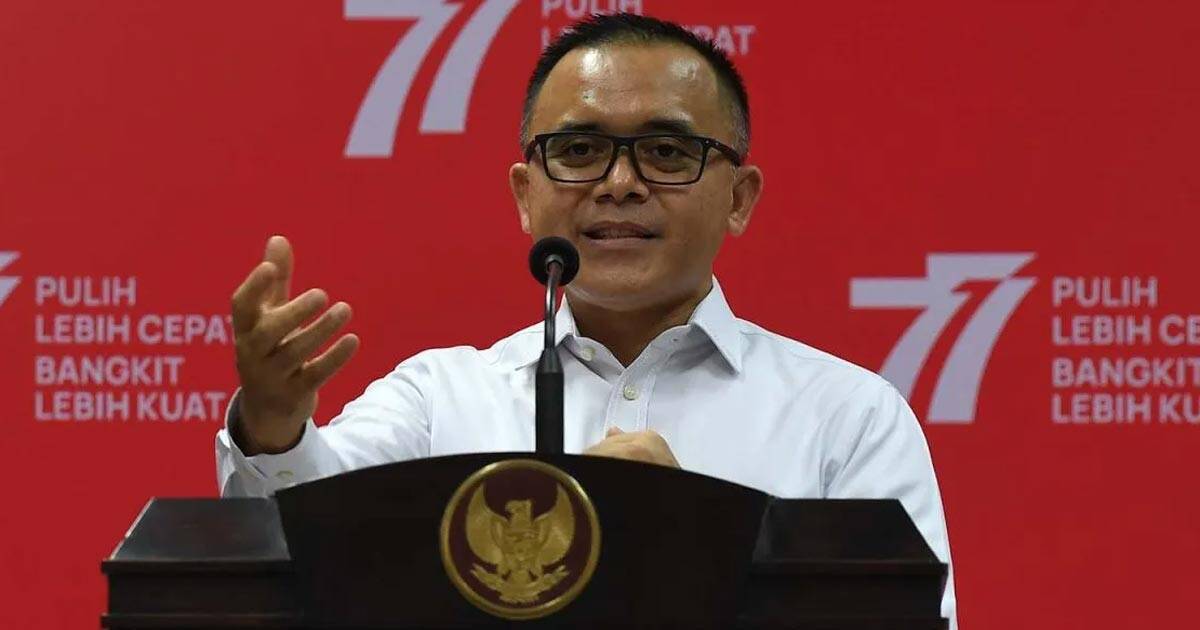The government of Indonesia has begun rolling out digital IDs for the Southeast Asian nation’s citizens.
The move was announced by Indonesia’s Minister of Apparatus Utilisation and Bureaucratic Reform Abdullah Azwar Anas.
According to Anas, issuing digital IDs is vital for the optimum use of the Electronic-Based Government System.
He insists that the new digital-only system will streamline access to integrated government services.
While the new digital IDs won’t technically be mandatory, they will be required for citizens who wish to access basic services.
The move takes humanity one step closer to the Global Public-Private Partnership.
The digital system is gaining control over what people can and cannot access based on obedience and compliance with the rules made by those who control the system.
In Indonesia, the digital ID system’s issuance and authentication will be handled either via the INA Digital app or the Public Service Portal.
Public Service Portal Indonesia is a digital platform designed to consolidate various government services into one platform.
Access to healthcare, digital banking, education, and social assistance services will be managed through a single portal.
GovTech Indonesia, officially called INA Digital, was launched in May and will be introduced for trial in September.
Key features include a comprehensive digital ID system.
At its launch, Erick Thohir, the Minister for State-Owned Enterprise, said:
“Today we have the confidence to begin our first step in developing a technology-based governance system.”
President Joko Widodo underlined the importance for the country to improve its global digital public infrastructure (DPI) capabilities
The global DPI system – which is being promoted by the World Economic Forum (WEF), United Nations (UN), World Bank, and Bill Gates – consists of digital ID, digital payment, and data exchange.
Anas said INA Digital will accommodate public applications for health services, education, social aid, digital ID, police permit for public assembly, and driver’s licenses in a single portal.
Integration of INA Digital and the Public Service Portal involves a collaboration between the Ministry of Home Affairs and the Ministry of Communication and Information.
Anas said that Home Affairs will be responsible for enhancing the biometric liveness detection feature and functionality of the INA Digital.
Meanwhile, the Communication and Information Ministry will work on the single sign-on system with the Public Service Portal.
The minister says these efforts are all aimed at streamlining access to digital ID and authentication services and making it much easier for citizens to enjoy the government services they apply for.
Meanwhile, for the fourth time, Indonesia’s Directorate General of Population and Civil Registration (Dukcapil) has renewed its partnership with the workers’ security and social welfare program BPJS Employment on citizen data verification for benefits.
The deal also seeks to leverage the use of digital ID data to facilitate access to services for workers during and after their working years.
Indonesia has been actively developing its digital ID infrastructure for several years through various initiatives.
One initiative is a national digital ID system.
Its digital identification project has funding support from the World Bank, an agency of the United Nations (UN).
Since 2011, the Indonesian government has issued an electronic version of the national identity card, e-KTP (KTP elektronik).
The e-KTP card contains an embedded microchip.
This card is used for various purposes, including social aid disbursement and government services.
The country has continued to work towards a comprehensive globally-linked national digital ID system.
The system aims to provide a “secure and convenient” way for citizens to access government services, financial transactions, and other online services.
The system will utilize facial recognition technology and leverage existing infrastructure, such as the e-KTP database.
Digital IDs are a key focus area for the WEF.
“The private sector must play a key role in inclusive economic growth,” the WEF pontificated in 2022.
“We must unite the individual efforts of different countries to create a global network of public-private partnerships.”
In June 2019, WEF and the United Nations signed a Strategic Partnership Framework to accelerate the implementation of the UN’s 2030 Agenda for Sustainable Development with its 17 Sustainable Development Goals (SDGs)
The Global Public-Private Partnership alluded to by the WEF is a worldwide amalgam of organizations.
Many of these organizations are explicitly backed by or housed at the UN.
All of them are pushing digital ID as the key mechanism to achieve SDGs.
In fact, establishing a global digital ID is crucial for achieving SDGs, accoridn gto the UN.
Digital ID will determine individuals’ access to public services, to central bank digital currency (CBDC) wallets, to “vaccine” certificates – to everything.
Even the food and beverages bought and consumed will be tracked and controlled.
In 2023, WEF’s chief Klaus Schwab was given a platform at the ASEAN Summit held in Jakarta to promote the merging of state and corporate power.
He said that the fusion of corporation and state would shift “the era of capitalism to the era of talentism,” where innovation becomes the “key competitive factor.”
This is after he had explained that in merging private corporations and the state, “governments still provide direction but business provides the innovative power.”
READ MORE – Biden Rushing Executive Order to Force Digital ID onto Americans



Our comment section is restricted to members of the Slay News community only.
To join, create a free account HERE.
If you are already a member, log in HERE.
Recommended